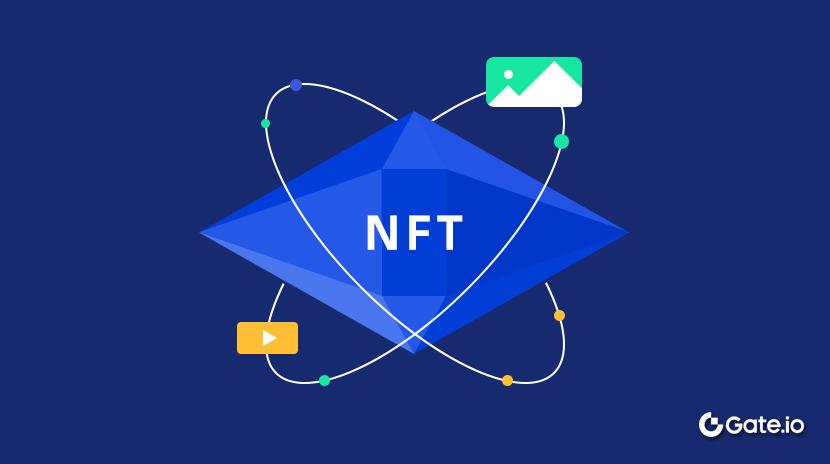exclusive edition number

Exclusive edition numbers represent a crucial mechanism for uniquely identifying scarce digital assets in the blockchain domain. This concept, derived from traditional collectibles markets and integrated into the crypto ecosystem, primarily serves to denote the scarcity and authenticity of NFTs (Non-Fungible Tokens), digital art, or specific crypto assets. Exclusive edition numbers are typically embedded as metadata on the blockchain, remaining immutable and publicly verifiable, providing transparent proof of provenance and ownership tracking for digital collectibles. This unique identification not only distinguishes between similar assets but also assigns digital collectibles a clear market position and potential value foundation.
Market Impact of Exclusive Edition Numbers
Exclusive edition numbers have profoundly influenced the crypto asset market in several key ways:
- Value stratification: Exclusive numbering creates scarcity hierarchies for digital assets, with low numbers (like #1, #10) or culturally significant numbers (such as #888 in some cultures) often commanding substantial premiums
- Evolution of collecting culture: They have facilitated the migration of traditional collecting behaviors to the digital realm, nurturing a new generation of digital collectors
- Secondary market vitality: Limited-numbered assets trade frequently, developing unique pricing mechanisms and liquidity characteristics
- Brand marketing tool: Renowned projects and creators utilize limited-numbered series for marketing purposes, enhancing brand value
- Community stratification: Ownership of specific numbered assets becomes a symbol of community identity, creating new social hierarchies and exclusive privileges
Exclusive edition numbers have become critical reference factors in valuing crypto collectibles, influencing market dynamics and investment strategies throughout the NFT ecosystem.
Risks and Challenges of Exclusive Edition Numbers
Despite bringing innovation to the digital collectibles market, exclusive edition numbers face numerous risks and challenges:
- Artificial hype: The scarcity of numbered editions can be exaggerated, leading to price bubbles and irrational market behavior
- Subjectivity of value: The value of numbers heavily depends on community consensus and subjective perception, making objective valuation difficult to establish
- Liquidity issues: Assets with specific numbers may encounter liquidity problems due to limited buyer pools
- Regulatory uncertainty: Limited edition digital assets have unclear legal status in many jurisdictions, posing regulatory risks
- Artificial scarcity concerns: In a digital world where infinite reproduction is technically possible, artificially created scarcity may face legitimacy questions
- Authentication challenges: Despite blockchain's technical guarantees, the market still experiences fraudulent limited edition claims and counterfeits
These issues necessitate extra caution from investors participating in the limited edition digital asset market, requiring comprehensive risk-reward assessment.
Future Outlook for Exclusive Edition Numbers
Exclusive edition numbering has extensive application prospects in the crypto asset domain, with future development likely showing these trends:
- Cross-chain interoperability: Limited edition numbering systems will achieve compatibility across blockchain networks, breaking ecosystem barriers
- Physical-digital integration: Traditional physical collectibles will increasingly combine with blockchain-based numbering, creating dual verification systems
- Dynamic numbering mechanisms: Systems based on usage patterns, holding periods, or community contributions will replace static numbering
- Social application expansion: Limited numbering will further integrate into social media and metaverse environments, becoming components of digital identity
- Institutional recognition: As markets mature, traditional art institutions and auction houses will increasingly accept limited numbering as value certification
- Smart contract enhancements: Numbered assets will incorporate more complex smart contract functionalities, such as automatic royalty distribution and conditional transfers
With dual advancement in technology and markets, exclusive edition numbering systems are poised to become crucial bridges connecting traditional collecting culture with emerging digital economies, offering more transparent and secure solutions for asset ownership and value transfer.
Exclusive edition numbers represent a significant innovation brought by blockchain technology to creators, collectors, and investors. They not only address the core issue of digital scarcity but also inject new vitality and possibilities into traditional collectibles markets. However, participants should rationally assess their value foundation, recognizing the difference between market sentiment and long-term value. As the crypto ecosystem continues to mature, limited edition numbering mechanisms will evolve, potentially developing more complex and diverse value systems while providing authenticity guarantees. In this rapidly developing field, maintaining vigilance and continuous learning will be key factors for participants' success.
Share
Related Articles

Top 10 NFT Data Platforms Overview

7 Analysis Tools for Understanding NFTs
